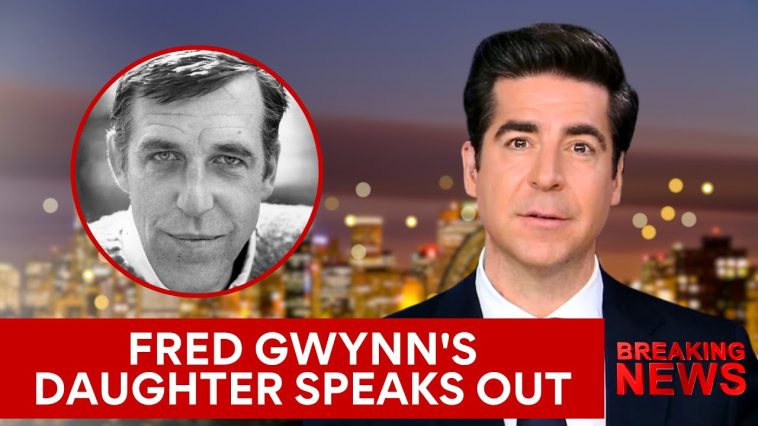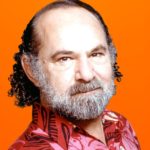Thirty years after his passing, beloved actor Fred Gwynne remains best known for playing the lovable monster Herman Munster. But behind the Frankenstein makeup was a talented performer with a complex story.
Now, Gwynne’s daughter, Madyn, pulls back the curtain on the man versus the myth. From his privileged youth to artistic education, wartime service, and rise to sitcom stardom, discover what shaped this American icon. Join FactsVerse as we rediscover the multidimensional artist behind Herman Munster and reexamine the life of a television legend.
The Early Years
Fred Gwynn was born Frederick Hubbard Gwynne on July 10, 1926, in New York City, into a family that had a rich history in the arts. His father was a successful stockbroker, while his mother was an artist. This blend of business acumen and artistic flair would later define Fred’s multifaceted career. Growing up in the affluent neighborhood of Tuxedo Park, New York, Fred was exposed to a life of privilege, but he never let that define him.
From a young age, Fred showed an inclination towards the arts. He attended the prestigious Groton School in Massachusetts, where he was active in the drama club. His towering height of 6 feet 5 inches made him a distinctive presence, both on stage and off. But it wasn’t just his height that stood out; it was his undeniable talent and charisma. Teachers and peers alike recognized that Fred had a gift, one that could not be ignored.
Portrait Painting
Fred’s talents weren’t confined to acting alone. He was an avid painter and showed a keen interest in drawing. In fact, before his foray into acting, he studied portrait painting at the Phoenix School of Design in New York. His artistic skills were not just a hobby but a passion that he took seriously. He even considered making it his career, a path that would later serve him well in understanding the nuances of character development in his acting roles.
However, life had other plans. The outbreak of World War II interrupted his artistic pursuits. Fred enlisted in the U.S. Navy and served as a radioman on a submarine-chasing ship. This period was transformative for him, instilling a sense of discipline and responsibility that would be evident in his later professional choices. After the war, Fred returned to his studies, this time at Harvard University. It was here that he became a member of the famed Hasty Pudding Club, a theatrical society that further honed his acting skills. His performances in college productions were highly acclaimed, setting the stage for what would become a legendary career in Hollywood.
Breakout Success on Stage and Screen
After graduating from Harvard in 1951, Gwynne started his acting career on stage. His deep baritone voice and imposing 6’5″ stature lent themselves well to Shakespearean parts and comedic roles. He made his Broadway debut in 1952 as a gangster in “Mrs. McThing,” starring legendary actress Helen Hayes who had discovered him at Harvard.
Over the next decade, Gwynne began building his reputation in theater while also breaking into television. He landed parts on early anthology series like “The United States Steel Hour” and “Kraft Theatre.” His ability to deliver laughs led to guest appearances on The Phil Silvers Show, where his eating contest scene became an instant classic.
“Car 54, Where Are You?”
Gwynne’s big break came when he was cast as Officer Francis Muldoon on the sitcom “Car 54, Where Are You?” The series followed the misadventures of Muldoon and his dimwitted partner Officer Toody, played by Joe E. Ross. Set in the Bronx, it used New York City as its comedic backdrop. While only airing for two seasons from 1961-1963, “Car 54” was a critical success, earning four Emmy nominations including Outstanding Directorial Achievement in Comedy.
Despite this achievement, Fred Gwynne felt constrained by the lighthearted cop role. With his imposing frame and unconventional looks, he struggled to land versatile parts in Hollywood. So when producer Stephen Z. Bromberg approached him about starring as Herman Munster in a new sitcom, “The Munsters,” Gwynne reluctantly agreed. Premiering on CBS in 1964, “The Munsters” blended the Universal monster movie archetypes of the 30s and 40s with sitcom suburban family ideals. Gwynne’s Herman was the Frankenstein’s monster patriarch, paired with Yvonne De Carlo’s vampire housewife Lily. While the show only lasted two seasons, it became a pop culture phenomenon. But for Gwynne, getting into the heavy monster makeup and costume every day was exhaustive, and being immortalized as the bumbling Herman was creatively stifling.
Life After The Munsters
When The Munsters was canceled in 1966, Gwynne found himself indelibly associated with the Herman monster character. Despite his stage pedigree and dramatic training, Hollywood directors and producers struggled to see him as anything else.
Seeking more challenging roles, Gwynne returned to the theater. He won an Obie Award for his off-Broadway performance in “Grand Magic” in 1979. His most acclaimed part was starring as Big Daddy in the 1974 Broadway revival of Tennessee Williams’ stage classic “Cat on a Hot Tin Roof.” Critics praised his powerful yet nuanced take on the Southern patriarch role.
Though he had resisted being typecast, financial pressures led Gwynne to reprise his role as Herman Munster for the 1981 TV movie “The Munsters’ Revenge.” He only agreed after demanding an exorbitant salary, which the network surprisingly acquiesced to.
“The Cotton Club”
In the 1980s, Gwynne began rebuilding his acting career with roles in Francis Ford Coppola’s “The Cotton Club,” alongside Richard Gere and Diane Lane, and the Oscar-nominated Ironweed, with Jack Nicholson and Meryl Streep. Horror fans appreciated his chilling turn as Jud Crandall in the adaptation of Stephen King’s “Pet Sematary. “
But it was his comedic talent that shone through again when he was cast as Judge Chamberlain Haller in the 1992 hit My Cousin Vinny opposite Joe Pesci and Marisa Tomei. His exasperated back-and-forth with Pesci’s character showed Gwynne’s knack for timing and deadpan delivery. Critics singled out his performance as the highlight of the film.
Between acting jobs, Gwynne pursued his passions for painting and writing. He illustrated several popular children’s books that he authored himself. Titles like “A Chocolate Moose for Dinner,” “The King Who Rained,” and “A Little Pigeon Toad” remain in print. Gwynne valued his privacy and lived a quiet life on a Maryland farm with his second wife Deb, whom he married in 1981 after divorcing his first wife Foxy in 1980. To the end, he grappled with his public and private personas. Though Herman Munster brought him fame, it carried complex professional and personal repercussions. But Gwynne’s legacy remains immortal through the joy his iconic roles continue bringing to audiences.
Personal Tragedy and Loss
Fred Gwynn’s public persona was often overshadowed by the characters he portrayed, most notably Herman Munster. However, behind the scenes, he navigated a life filled with both joy and sorrow, love and loss.
In 1952, Fred married Jean “Foxy” Reynard, a union that would produce five children. The couple seemed to have a fairytale life, complete with a growing family and burgeoning careers. However, the family was struck by an unimaginable tragedy in 1963 when their son Dylan drowned at just one year old. The loss was devastating, a wound that never fully healed for either parent.
As if fate hadn’t dealt them enough blows, another son, Kieron, suffered brain damage at the age of one, leaving him permanently disabled. These personal tragedies took a toll on Fred and Foxy’s marriage. Despite the love they had for each other and their remaining children, the weight of their losses was too much to bear. After 28 years of marriage, the couple divorced in 1980.
Deb Gwynne
Fred remarried a year later, in 1981, to Deb Gwynne. The couple chose to step away from the limelight, living quietly on a farm in Maryland. In stark contrast to the years of personal upheaval he had experienced, this time in Fred’s life was characterized by a sense of peace and contentment. It seemed as though Fred had finally found a sanctuary where he could be himself, away from the prying eyes of the public and the haunting memories of his past.
However, this tranquility was short-lived. In 1993, Fred was diagnosed with pancreatic cancer. The disease was aggressive, and despite the best efforts of his medical team, Fred passed away at the age of 66. His funeral was a private affair, attended only by close family and friends, in keeping with his wish to separate his personal life from his public persona. Fred Gwynn left behind a profound legacy, not just as an actor but as a complex individual who faced unimaginable hardships with grace and dignity. Yet, he remains a misunderstood figure, often reduced to the caricature of Herman Munster, the character that brought him fame but also typecast him in the eyes of the public.
Remembering Fred Gwynne
Though he passed away from pancreatic cancer in 1993 at age 66, Fred Gwynne remains beloved by legions of fans for his memorable on-screen characters. But according to his daughter Madyn, her father was so much more than just Herman Munster.
Gwynne was a gifted artist first and foremost, she says, talented at illustration, painting, sculpting and writing. Friends recall his sharp intellect and wicked sense of humor that could liven up any room. He loved clever wordplay and was always scribbling down ideas for stories or drawing caricatures of friends.
But Gwynne also struggled privately with depression and feelings of isolation throughout his life and career. Despite wide-ranging talents, he found himself typecast after playing Officer Francis Muldoon on Car 54 and especially as Herman Munster. He resented being reduced to a two-dimensional caricature in the public eye.
Public Persona And Private Self
Personal tragedies painfully widened the gap between his public persona and private self. Gwynne’s problems became more difficult as a result of the drowning death of one of his young sons and the illness that left another son permanently disabled. Few knew of his deep grief.
According to biographer Stephen Cox, Gwynne’s reluctance to discuss his Munsters days later in life likely stemmed from wanting to avoid revisiting this period of intense professional success shadowed by profound personal loss. He deliberately retreated from Hollywood to focus on his art and family.
Late in his career, Gwynne had remarried and found peace living anonymously on a rural Maryland farm painting, writing children’s books, and occasionally acting. He remains misunderstood, says his daughter, because his biography became oversimplified into the highs of fame and lows of typecasting.
The depth of Gwynne’s talent is evident when looking back at his Shakespearean training, Harvard artistic pedigree, and range of stage roles. But ironically, the stereotyped Frankenstein and Herman Munster characters he chafed at playing gave him an immortal pop culture legacy.
There you have it. It’s now time to hear from you. Were you surprised to learn about Fred Gwynne’s upper class upbringing and Harvard education?




